
By:
- Kristin Schafgans
Published Date
By:
- Kristin Schafgans
Share This:
Coming Home: Alumni Faculty Share Why They Came Back to Campus
It’s no secret that UC San Diego’s reputation as a top-ranked university is a major draw for prospective students—but it’s also pulling many graduates back to campus to serve as members of the faculty. In classrooms and labs across the university, our alumni are leading new directions in research and helping to train the next generation of innovators.
“We’re proud to have so many talented graduates who return to campus as faculty members, bringing with them fresh thinking that enriches our academic community,” said Chancellor Pradeep K. Khosla. “UC San Diego is ranked the 15th best university in the world, a testament to our faculty and students.”
We talked with several current alumni faculty members about what drives their research and how their UC San Diego education prepared them for success. The paths they took after graduation are as diverse as their academic interests. Before returning to their alma mater, these stellar scholars have held positions at universities across the globe, from Harvard and Princeton, to the Université de Genève in Switzerland.
As for what brings them back, it’s the caliber of our students and faculty, an experimental culture that supports out-of-the-box thinking, and a willingness to break the traditional boundaries between various fields of study.
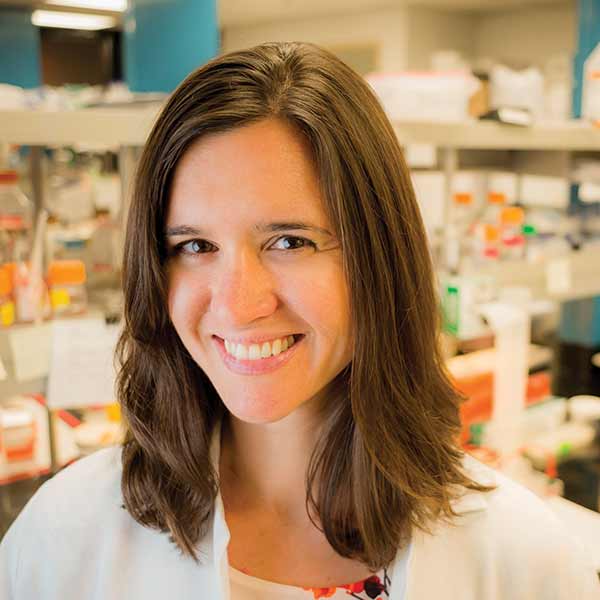
Brenda Bloodgood, ’01
Assistant Professor of Neurobiology
Brenda Bloodgood’s lab is trying to understand how neural circuits work—specifically, how an animal’s experiences change the function of neural circuits via changing patterns of gene regulation. Her research will not only help scientists better understand how healthy brains work, but will also provide new insight into neurological disorders, such as autism and schizophrenia.
Bloodgood first came to UC San Diego as an undergraduate studying animal physiology and neuroscience. She cites the opportunity to work in a lab as one the most valuable aspects of her college education and is pleased to see that today’s students have even more opportunities available to them.
“The campus has gotten bigger, which means expanded access to resources like the Teaching + Learning Commons , the REAL portal and research opportunities,” she said.
After graduating from UC San Diego in 2001, Bloodgood went on to earn her doctorate in neurobiology from Harvard Medical School and trained there as a postdoctoral fellow. In 2012, she returned to UC San Diego as an assistant professor of neurobiology.
“The scientific community at UC San Diego is incredibly creative, insightful and collaborative,” said Bloodgood. “The students are impressive for their intellect and drive. It's among the best places to do research in the country.”
The campus has also become one of the world’s major centers for brain research. The Center for Brain Activity Mapping at UC San Diego was established in 2013 and the campus has received grants from both President Barack Obama’s BRAIN Initiative and the state’s CalBRAIN initiative. Bloodgood’s research has earned funding from both, as well as honors such as the Pew Biomedical Scholars Award and NIH New Innovator Award.
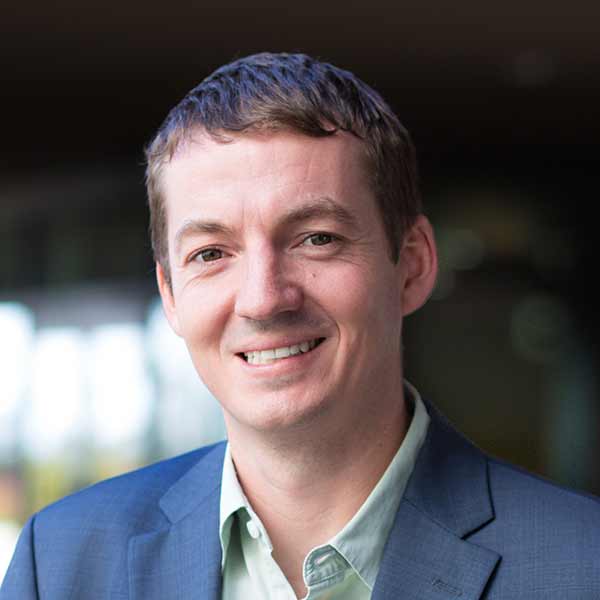
Michael Callen, Ph.D. ’11
Assistant Professor of Economics and Strategic Management
Rady School of Management
In just five years after earning a doctorate in economics at UC San Diego, Michael Callen has been a post-doc at UC Berkeley, a UCLA faculty member, and most recently, assistant professor at the Harvard University Kennedy School of Government. Now, he feels it’s the right time to return to campus, joining the Rady School of Management this fall as assistant professor.
“The community focused on economic and political development at UC San Diego is experiencing a very exciting moment,” Callen explained, noting that there is an interdisciplinary group centered at the Policy Design and Evaluation Lab (PDEL) that is doing incredibly innovative research at the frontier of development economics. “This group is doing work that embodies the UC San Diego spirit of innovation and disruption, in a domain where it has massive potential to positively benefit the world’s poor.”
That research fits right into Callen’s field of study, which focuses on the causes of state governance failures in developing countries. International donors spend billions of dollars to strengthen governance in developing countries, yet it is far from clear that this spending is having the desired effect. Callen is focused on finding effective ways to strengthen governance in developing countries.
As an example, Callen is currently working with the Policy Coordination Unit of the Office of the President of Afghanistan to design, implement and evaluate a new system for paying government salaries, which account for a substantial share of international aid provided to Afghanistan. He said, “Our goal is to replace the existing system with a system where employees are paid using Mobile Money—a system which permits electronic currency to be transmitted via cellular phones, and converted by local agents—which eliminates many of the challenges of executing payments and holds the potential to substantially reduce corruption in an environment where only 4 percent of citizens have access to a formal bank account.”
For Callen, one of the greatest benefits to coming back to UC San Diego is seeing how the campus has changed. “When I started as a graduate student, there was only a very small community interested in the economic and political issues facing poor countries. This community has grown very rapidly. The group is now large enough, and doing enough path breaking research, that we are thought of as one of the premier centers for development economics research globally. I am extremely excited to be back here and in a position to try to add momentum to this.”
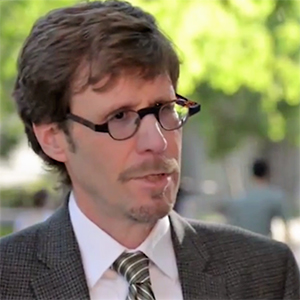
Grant Goodall, Ph.D. ’84
Professor of Linguistics
Division of Social Sciences
Grant Goodall attended UC San Diego at a time when Geisel Library marked the edge of campus and it wasn’t unusual to come across a coyote or rattlesnake on the way to class. The physical campus may look very different now, but the cutting-edge, intellectually rigorous spirit that challenged him as a doctoral student is still strong.
“I had some amazing teachers who always kept pushing and never let me get away with easy answers to hard questions,” he said.
After earning his doctorate, Goodall worked at the University of Texas at El Paso and held visiting appointments at the Université de Genève in Switzerland and the Universidad Nacional del Comahue in Argentina. Ultimately, the caliber of faculty and graduate students in the areas of language and cognition at UC San Diego drew him back.
Goodall’s research focuses on the design of human language. His specialty is syntax, a field of study that involves figuring out the properties that determine how words are combined to form larger units such as sentences. He tries to discover which properties are specific to the particular language, which are properties of human language in general, and which are due to broader cognitive mechanisms such as memory. The experimental culture at UC San Diego has enabled Goodall not only to do boundary-breaking research in syntax, but also to take his work in directions outside the traditional realm of linguistic study. For instance: to improve education.
“When I began working as a faculty member at UC San Diego, I saw that there was an unfortunate gap between what language teachers usually do in the classroom and what scientists know about how humans learn best,” he said. “I have worked hard to breach this gap, and we’re beginning to see the results. This type of work is possible at UC San Diego because we don’t have the sharp disciplinary boundaries that older universities do.”
That willingness to challenge expectations is a lesson Goodall believes is important for current UC San Diego students: Always question, always probe and keep pushing to come up with something better.
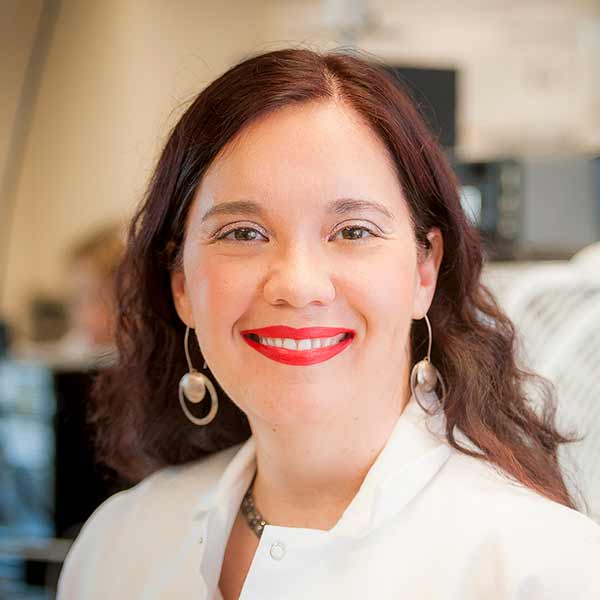
Olivia Graeve ’95
Professor of Mechanical and Aerospace Engineering
Jacobs School of Engineering
How do you make a stronger metal? Olivia Graeve is working on developing materials that can withstand extreme impacts and are faster and more cost-effective to manufacture. Earlier this year, her lab developed a record-breaking steel alloy—a material that could be used for everything from drill bits, to body armor for soldiers, to meteor-resistant casing for satellites.
Graeve is a professor at the Jacobs School of Engineering and a proud native of the San Diego-Tijuana region. She grew up in Tijuana and attended Southwestern Community College before transferring to UC San Diego to study structural engineering. As an undergraduate, she worked in the lab of Professor Joanna McKittrick and saw first-hand what it takes to run a research laboratory.
“The experience put me on an excellent path toward the professoriate,” she said.
Graeve held faculty positions at the University of Nevada, Reno and Alfred University in New York before joining the UC San Diego faculty. Reflecting on how the campus has changed since she was a student, Graeve says that UC San Diego is bigger and better, with more opportunities for students, staff and faculty.
Today, she’s doing her part to ensure the university continues on its upward trajectory. Graeve leads a number of outreach programs for underrepresented students on both sides of the border. She also serves as director of the CaliBaja Center for Resilient Materials and Systems, which brings together researchers across the San Diego-Tijuana region.
“The opportunity to serve my alma mater and the region in which I grew up is something that is very important to me,” said Graeve. “Coming back to UC San Diego was coming home. Who would not want to be home?”
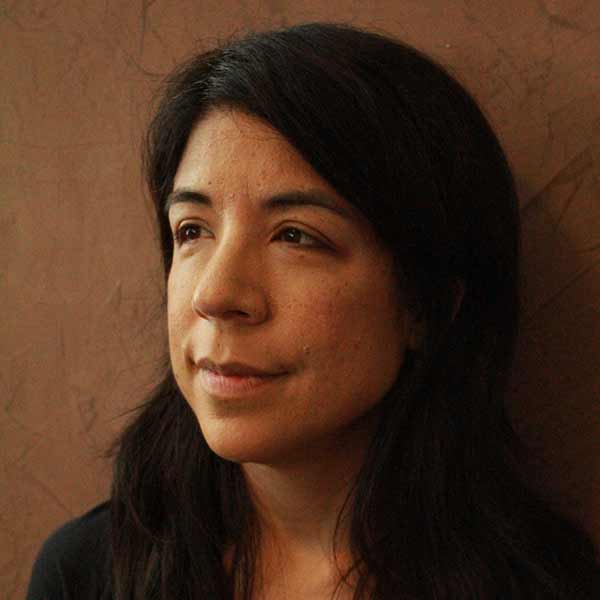
Naomi Iizuka, M.F.A. ’92
Professor and Head of Playwriting
Division of Arts and Humanities
The subject matter of Naomi Iizuka’s plays ranges from the lives of homeless teens living on the streets to the lives of men and women working in a meatpacking plant on the Ohio River. Yet, there’s a common thread.
“It’s a preoccupation with stories about lives that we don’t always hear about, or telling stories that we may be familiar with, but telling them in a different way,” she said. “I think the best theater, the most exciting theater, is one which tells stories that disrupt the status quo, that makes us see ourselves and our world anew.”
Iizuka earned her M.F.A. from UC San Diego’s Department of Theatre and Dance in 1992. Since then, her plays have been produced in large regional theaters—including Chicago’s Goodman Theatre and the Berkeley Repertory Theatre—as well as smaller, more experimental companies around the country.
She’s returned to her alma mater as a professor and head of playwriting in Theatre and Dance.
“Playwriting students at UC San Diego have an unparalleled opportunity to see their work on stage and to collaborate with students in acting, directing, design and stage management,” said Iizuka. “I was excited to return to a program in which production and collaboration were at the center of the educational experience.”
That collaborative educational experience, says Iizuka, provided her with a strong foundation to launch her own career. While a graduate student at UC San Diego, she learned how to communicate a vision, how to listen, how to work through challenges and how to not lose sight of the goal.
Today, Iizuka encourages all UC San Diego students to think of themselves as storytellers: “Whether you are a novelist or a physicist, you are telling stories—you are helping to make sense of the universe in which we find ourselves.”
To do that well, she says, ask interesting questions, keep an open mind and cultivate the ability to think creatively.
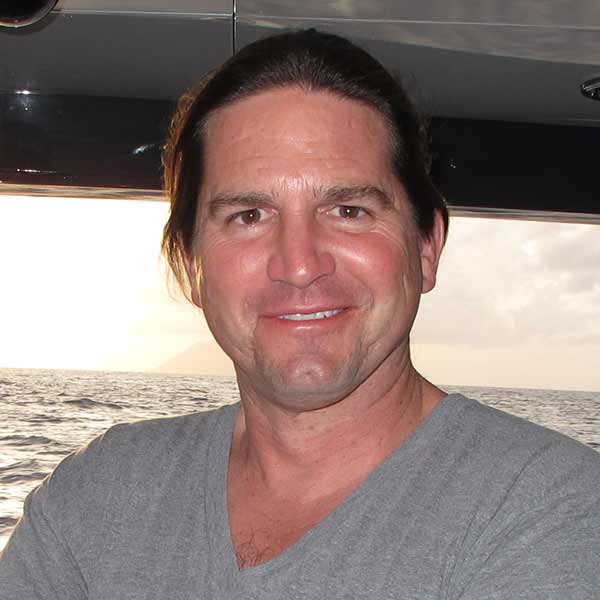
Stuart Sandin ’94
Associate Professor of Marine Ecology
Scripps Institution of Oceanography
How do coral reefs change when sharks are removed? Stuart Sandin is investigating questions like this about community ecology. His research aims to understand how organisms live together, what controls the structure of ecological communities as well as how communities that look different may also function differently. In the case of sharks and coral reefs, Sandin’s work has contributed to new understanding of the role that large predator’s serve in maintaining an ecosystem.
“I am fascinated by the world around us and in learning about what is not known,” he said. “Being at a wonderful campus like UC San Diego is a dream and a responsibility.”
As an undergraduate at UC San Diego, Sandin majored in ecology, behavior and evolution, with a minor in Spanish literature. He went on to earn his doctorate in ecology and evolutionary biology from Princeton University and then served as a lecturer and research associate at the university. While on the East Coast, he was open to job opportunities in California, particularly within the University of California. At the same time, he became increasingly involved with the study of the ocean. When a position became available at Scripps Institution of Oceanography, he jumped at the opportunity.
Sandin points out that UC San Diego offers the “best of both worlds” when it comes to undergraduate education: The resources and opportunities of a top research university and the more personalized educational experience of the college system.
He added, “Over the past years, I’ve had the opportunity to learn about varying training programs offered by different colleges and universities. Very few universities are as good as UC San Diego at balancing top-level research with extremely thoughtful educational experiences for the undergraduate community.”
Share This:
You May Also Like
Stay in the Know
Keep up with all the latest from UC San Diego. Subscribe to the newsletter today.


